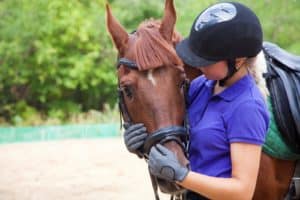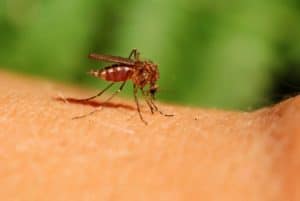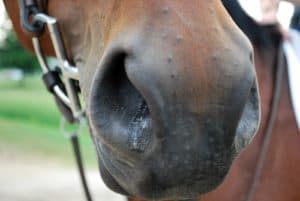Latest News – The Horse

Understanding the Biomechanics of Lameness
Equine locomotion involves consistent patterns of limb movements that change in predictable ways when the horse is lame. Learn what to watch for.

2014 Equine Research Hall of Fame Inductees Announced
This year’s inductees are Michelle LeBlanc, DVM, Dipl. ACT; Ernie Bailey, PhD, and Elwyn Firth, BVSc, MS, PhD, Dipl. ACVS.

Wisconsin Reports first Equine WNV Case of 2014
The unvaccinated St. Croix County Quarter Horse mare is recovering after being treated by a veterinarian.
Move Claims 57 Mustangs, BLM Says
An investigation revealed that the horses likely died of complications relating to their ages, stress related to the relocation, and a shift in feed from pasture grass to hay.

Poll Recap: Room for a Rescue
Of the 575 total respondents, 450 (78%) said they have rescued a horse.

Strangles Signs, Risk Factors, and Complications Evaluated
If your horse had strangles, would you be able to tell? He’d probably have those token swollen lymph nodes, right? It’s possible, but researchers recently determined that these signs alone aren’t the only ones that should prompt a strangles test.
For Want of a 12-Foot Stride
Since starting Hannah under saddle three years ago, I’ve been willing her to either shrink or grow. A few inches shorter and she’d be a

HBPA Horsemen Reaffirm Support of Furosemide
Furosemide is currently the only recognized treatment for exercise-induced pulmonary hemorrhage.

Second Lowndes County, Georgia, Horse Contracts EEE
Officials announced last week that the first Lowndes County horse had tested positive for the disease.
Byron Joins Virginia Tech as Large Animal Surgeon
Chris Byron, DVM, MS, Dipl. ACVS, has joined the Virginia-Maryland College of Veterinary Medicine at Virginia Tech as an associate professor of large animal surgery in the Department of Large Animal Clinical Sciences.
TWH Celebration Advisory Committee Lists Rule Changes
Rule changes involve when horses arrive at show grounds, X ray and blood sample collection, and more.

What are the Most Common Equine Toxins?
Researchers sought the most common causes of poisoning in Swiss equids. Toxic plants and medications topped the list.

Feeding the Hard-Keeper Horse that has Ulcers
Consider alfalfa hay, small meal portions, forage access, and more when feeding an ulcer-prone hard keeper.

Equine Coronavirus Identified in European Horses
This marks the first time coronavirus has been detected in European horses. Previously, it had only been identified in the United States and Japan.

Gulfstream Plans Furosemide-Free Races in 2015
Gulfstream Park plans to offer furosemide-free races for 2-year-olds in 2015 and eventually operate an on-track pharmacy to ensure tight regulation of medication.

Could Learning Theory Lead to Objective Dressage Judging?
One researcher shared his thoughts on how learning theory could be used to produce more objective dressage scoring.











